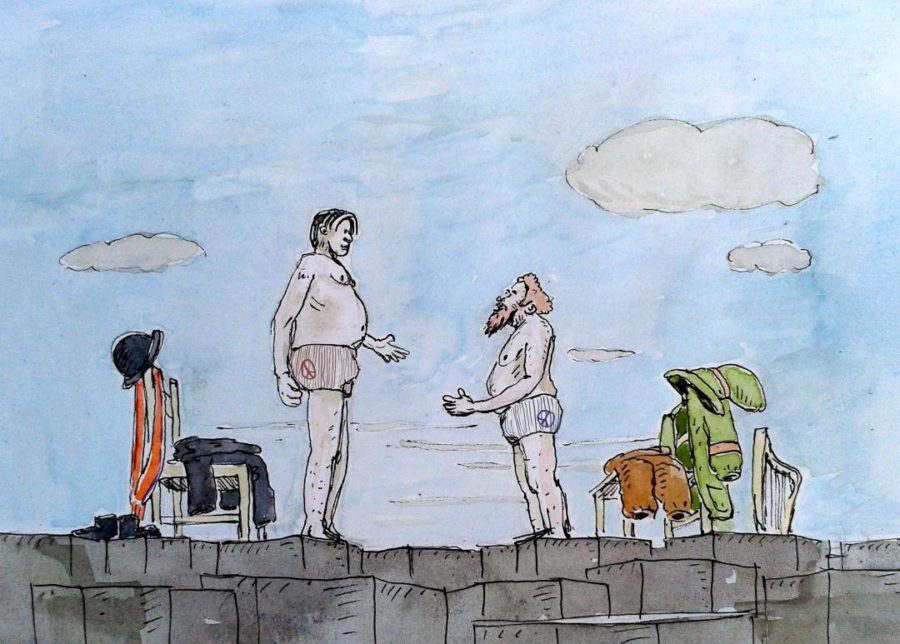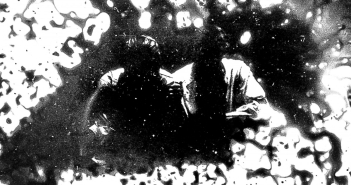Just a few years ago the prospect of Irish unity seemed remote. However, things are changing. Power-sharing has broken down and the Northern Assembly has been suspended for over two years. On top of that, a combination of a demographic shift in favour of Catholics, and the Brexit-influenced warming of some Protestant voters towards Irish unity means the idea of a pro-reunification majority in both jurisdictions emerging cannot be ruled out.
There remain, however, serious obstacles to unity south of the border. For one thing, many Southern taxpayers may think twice if asked to replicate the very high level of subsidy currently provided by Westminster to the North. But money is only money. It would take a brave political leader in the South to propose a ‘no’ vote in a unity referendum on financial grounds. A more important obstacle, therefore, may be the issues of symbols and identity.
The Good Friday Agreement guarantees ‘parity of esteem’ and ‘just and equal treatment for the identity, ethos and aspirations of both communities’ in Northern Ireland. Were this principle to be applied to the Southern state, it could involve changes to many symbols and arrangements that are emotionally important to large numbers of citizens.
Would Southern voters, for instance, be willing to accept unification if it meant having to compromise on the Irish/Gaelic nature of the symbols of the State. Securing a State that reflected and promoted a Gaelic cultural identity, was a central goal of the Irish national revolution and, as things stand, the symbols of the Irish state reflect this primacy of Nationalist and Republican symbols.
If a united Ireland meant replacing the tricolor with a neutral alternative; replacing terms like Dáil and Taoiseach with ‘Assembly’ and ‘Prime Minister’; dropping mandatory Irish in school and downgrading the Irish language in the constitution; many voters may begin to wonder if unity is a price worth paying.
After all, in the Treaty negotiations of 1921, the 1925 crisis over the Boundary Commission, in World War II and during the Troubles, when faced with a choice between obtaining or protecting the independence of the South from the UK and abandoning Northern nationalists, Southern leaders have consistently chosen the former.
The possibility that unification is blocked due to opposition from Southern voters cannot be discounted. However, it should also be considered whether, under the Good Friday Agreement, unification needs to raise the issue of symbolic changes at all.
As the Brexit process has slowly been teaching the British government, the political effects of the Good Friday Agreement cannot be localized to Northern Ireland, and even affect decisions taken at U.K. level.
However, that is not the case for the symbolic arrangements. Under the Good Friday Agreement the requirement of parity of esteem for both traditions is localized to Northern Ireland, and does not affect the symbolic arrangements of the U.K. as a whole. For the U.K. as a whole, the national flag remains the Union Jack, the national anthem remains ‘God Save the Queen’ and state bodies display British and monarchical symbols.
Therefore, under the Good Friday Agreement structures, should Northern Ireland join the Republic, there would still be an obligation to ensure parity between nationalist and unionist symbols within Northern Ireland. But such an obligation would remain localized to Northern Ireland and would not necessarily be extended to the symbolic arrangements and identity of the Republic.
This approach would give Unionists recognition of the legitimacy of their British identity, just as Northern Nationalists now have recognition of their Irish identity. And presumably, Northern Ireland would retain autonomous institutions characterized by power-sharing, with power being devolved from Dublin instead of London.
But just as Northern Nationalists are currently required to accept that Northern Ireland is part of a larger state with a British identity, post-unification Unionists would be required to accept that Northern Ireland was part of a larger state with an Irish identity, provided that within Northern Ireland itself, parity of esteem was ensured.
With the issue of reunification increasingly likely to come on the agenda in the medium term, it would be wise for citizens in the Republic to start thinking about what they would and would not be willing to sacrifice for unity.
Of course, as a matter of prudent politics, it may be better for some symbolic concessions to be made by the Republic in order to smooth any process of unification, but such concessions are not necessarily required by the Good Friday Agreement. Indeed, given the emotional importance of symbols such as the flag and language, it may be that a smooth process of reunification would also require reassurance to nationalists in the South that the wholesale change of symbols precious to them would not be required.
Ronan McCrea is Professor of Constitutional and European Law at University College London
Cartoon by Octo.
We rely on contributions to keep Cassandra Voices going.




